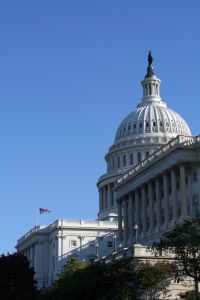The Pathway to Legalization and Citizenship immigration bill that was passed in the U.S. Senate, Bill S. 744 (which has yet to be passed by the US House of Representatives) was recently analyzed by the Center for Human Rights and Constitutional Law. This is an organization that has serious concerns about nine major areas of the immigration reform and pathway to legalization and citizenship section of the bill. The reason for its concerns is that these provisions are draconian and would likely deny provisional immigrant status to an estimated 4 million undocumented immigrants. These nine areas are as follows:
Must Move to the Back of the LineThe bill prohibits provisional immigrants from adjusting status to lawful permanent residence until after all other immigrant visas have become available for approved petitions that were approved and filed prior to enactment of the bill. However, there are quite a few explanations why the backlog will not be eliminated for decades, if ever. It would seem more beneficial, rather, to have the waiting period be a definite timeframe.
Must Maintain Average Income LevelThe bill requires provisional immigrants to show an average income at or above 100% of the federal poverty level during their period of admission in registered provisional immigrant status. Such proof must be presented upon renewal of their status. This requirement is unduly harsh because a large percentage of undocumented immigrants are low-income families living below the poverty level, and it would be unrealistic to expect everyone to quickly achieve this given the current state of the US economy and unemployment rate.
Must Maintain Continuous EmploymentThe bill prohibits provisional immigrants from extending their registered provisional immigrant status if they have been unemployed longer than 60 days. This requirement is unduly harsh by punishing people who are unemployed through no fault of their own. Again, this is unrealistic given the state of the economy and the unemployment rate.
Must pay Income TaxesIn order to qualify for registered provisional immigrant status, the person must not have any federal tax liability, meaning that they must establish that all required income tax returns have been filed and all taxes paid. This requirement is unduly burdensome and would block a significant number of undocumented workers from becoming provisional immigrants due to the lack of availability of documents required to file back tax returns or their financial inability to afford paying back taxes.
Must Wait for the Border to Become Secure Before Eligible for gReen CardProvisional immigrants will be permitted to file for US permanent resident status (green card) when a number of specific triggers occur. These triggers involve whether certain border security measures have been taken by the government including whether a comprehensive southern border security strategy has been submitted to Congress and essentially deployed and substantially operational. The problem with this is that it is impossible to predict when our border security issues will be solved, and does not seem likely this will happen any time in the near future. This should be changed to instead be a definite time frame so that provisional immigrants can anticipate when permanent residency will become available to them, if ever.
Must pay Fees and PenaltiesProvisional immigrants will be required to pay a fee designed to allow the government to recoup the cost of processing the applications, and will be required to pay a $1000 fine. The bill does allow for fines and fees to be paid in installments, however the total must be paid in full before an extension of status will be granted. This seems unduly burdensome and unaffordable as a large percentage of undocumented immigrant families earn under $20,000 annually, and the total in fines, fees, and filing fees can easily total thousands of dollars.
Not Eligible for Public BenefitsProvisional immigrants will not be eligible to receive federal public assistance benefits, not eligible for the premium assistance tax credit, and not eligible for benefits under the Patient Protection and Affordable Care Act (Obama care). Again, given that many undocumented immigrant families live below the poverty level, it does not seem wise to deny them access to much needed public medical and economic benefits.
Grant Program to Assist Nonprofit OrganizationsThe bill would allow the Department of Homeland Security (DHS) discretion to create program to fund certain nonprofit organizations that would assist provisional immigrants regarding immigration benefits and eligibility. It would make more sense for the bill to require the government to do this rather than just merely give it discretion to do so.
Nonimmigrant Visa Holders Disqualified in Some CasesImmigrants are disqualified under the bill if they entered the United States prior to December 2011 in any nonimmigrant status, even if they otherwise qualify for provisional status, if they have engaged in unauthorized employment or otherwise violated their nonimmigrant status. This provision will disqualify a very large group of undocumented immigrants who entered the US legally in nonimmigrant visa status, and then fell out of status for one reason or another. The reasoning behind this provision is not clear and does not seem to make sense.
It is good news to see that immigration reform may soon become a reality bringing undocumented immigrants out of the shadows and into the workforce thereby enhancing the US economy. However, hopefully this can be accomplished without causing the harm that will likely result from these unduly burdensome provisions.

